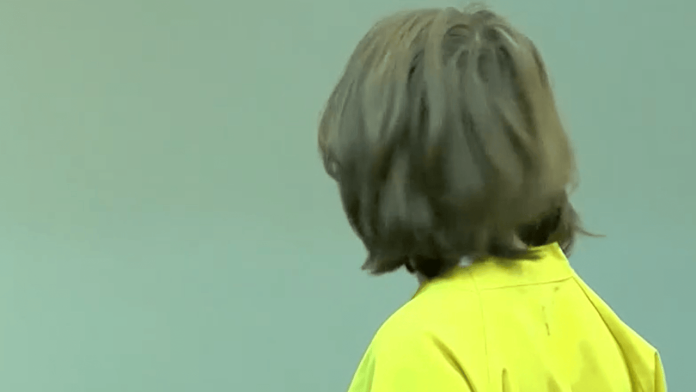Tragic Turn of Events: Mississippi Teenager Sentenced to Life for Mother’s Murder
In a heart-wrenching case that has captured national attention, a 15-year-old girl from Mississippi has been sentenced to life in prison after admitting to the murder of her mother, Ashley Smylie, a respected school teacher. The circumstances surrounding this case are both shocking and complex, raising important questions about mental health and juvenile justice.
The Shocking Incident: A Daughter’s Betrayal
On a seemingly ordinary day in March, a shocking event unfolded that would alter the lives of many. The high school freshman, who was just 14 at the time, surrendered to authorities after allegedly shooting her mother. According to prosecutors, the teenager shot Ashley three times before attempting to murder her stepfather, Heath Smylie, by luring him home with a text from her mother’s phone.
Heath arrived home to a harrowing scene, where he was able to disarm his stepdaughter after she fired two bullets in his direction, narrowly grazing his shoulder. This unforeseen act of violence has raised further questions about the young girl’s mental state.
Trial and Sentencing: Life in Solitary Confinement
Following a weeklong trial, the jury handed down a sentence of life imprisonment, marking a tragic conclusion to a case filled with turmoil. Prosecutors made the decision to charge the teenager as an adult, resulting in her being placed in solitary confinement at the Rankin Detention Center. According to her legal team, the conditions of solitary confinement, where she has limited contact with the outside world, are significantly deteriorating her mental health.
Her defense argued that such harsh treatment is unfair, especially when compared to how other adults and minors charged with similar crimes are treated. Despite support from Heath and Ashley’s family for a bond reduction, the judge denied the request, leaving the teenager to face solitary confinement for a significant portion of her day.
Growing Concerns for the Teenager’s Mental Health
The psychological impact of confinement is a pressing concern. Experts testified during the trial that the teenager’s time in isolation could help explain her detached demeanor. It’s alarming to think that while she awaits her fate, her mental state continues to decline, isolating her from family and friends who may offer support.
Additionally, following the lifting of a no-contact order, the teenager has been allowed to communicate with her stepfather for one hour a day. This limited interaction seems crucial for her mental well-being, yet raises further complications regarding the emotional aftermath of the events they both experienced.
Conflicting Narratives: A Complex Family Tragedy
Eyewitness accounts and testimony added layers of complexity to this tragic story. A friend of the teenager reported arriving at the home to find Ashley lifeless, covered by a towel. The young girl confessed to shooting her mother and described the horrific incident in detail. As the trial unfolded, the defense team highlighted her undiagnosed mental illness, arguing that the tragic actions that day resulted from factors beyond her control.
Meanwhile, Heath Smylie, still grappling with the death of his wife and the actions of his stepdaughter, expressed his belief that she suffers from mental illness. In his testimony, he described a chaotic atmosphere, indicating that her behavior during and after the shooting was alarming and erratic.
Plea Deal and Legal Ramifications
Before the trial, a plea deal was offered that would have resulted in a 40-year sentence. However, it was ultimately rejected by the defense, setting the stage for the life sentence she now faces. This critical decision raises questions about the representation of minors in the judicial system and the ethical implications of sentencing young people to life imprisonment.
Conclusion: A Case That Shakes the Community
This tragic incident has not only affected the individuals directly involved but has also shaken the entire community of Mississippi. The complexities of the case bring to light significant issues within the juvenile justice system, particularly regarding how mental health is assessed and treated.
As the dust settles after this devastating verdict, many will continue to reflect on what led to such a tragic turn of events. The questions surrounding mental health, justice, and the welfare of minors in the legal system are more pressing than ever, lighting a path toward necessary reform.
As we try to comprehend the layers of this case, one thing is clear: the scars of this tragedy will last for a long time.

